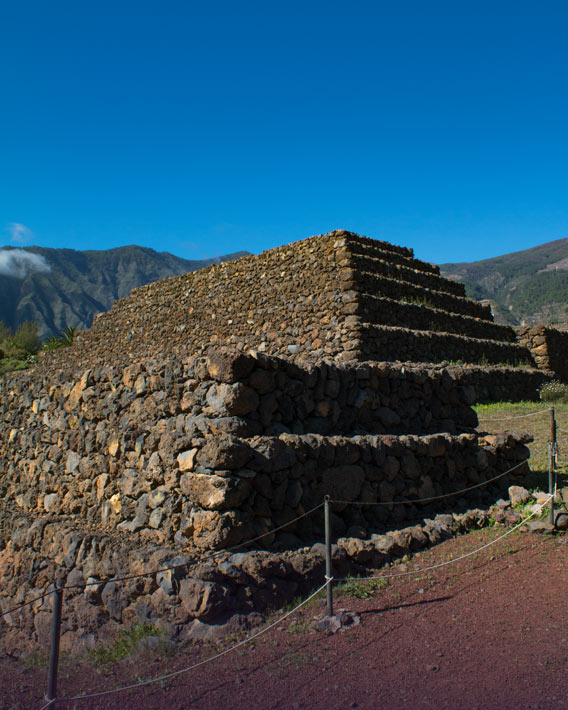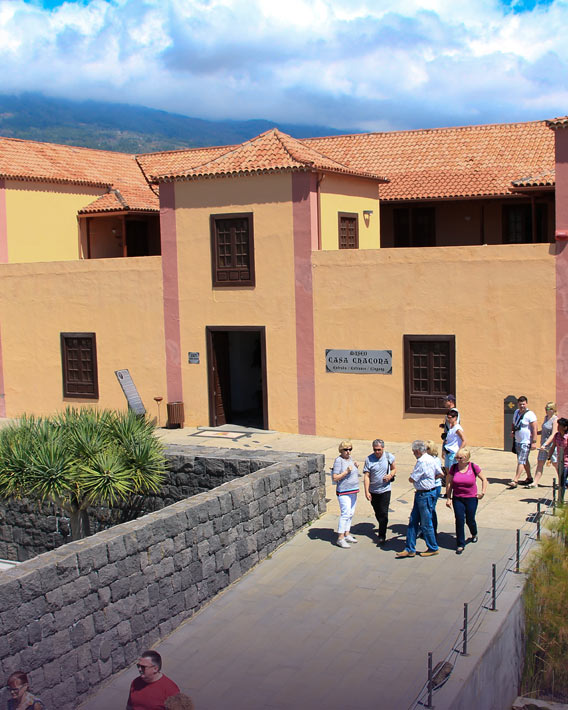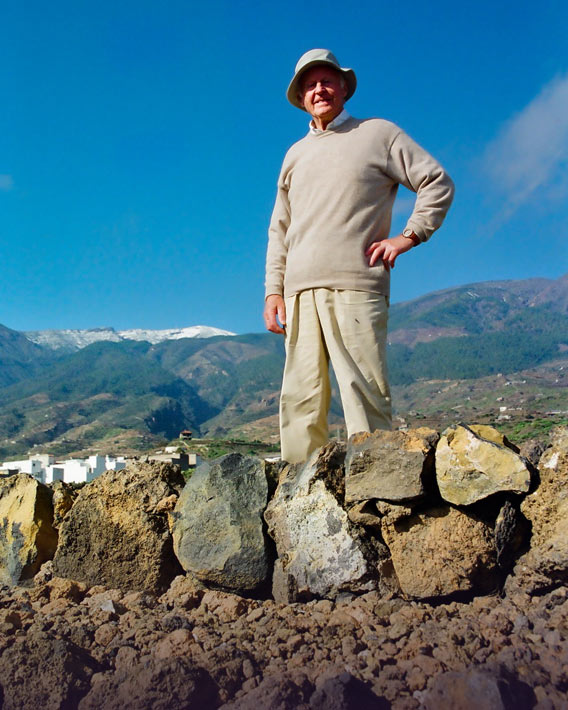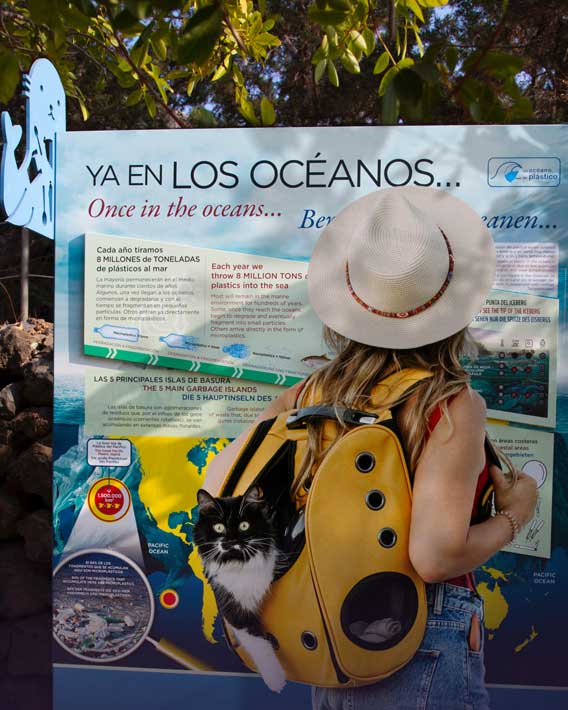Der Botanische Garten
Pirámides de Güímar beherbergt auf mehr als 30.000 M2 eine einzigartige Pflanzenvielfalt
Unsere lebendigen Ausstellungen
Der Giftgarten
Der nachhaltige Garten
Das Tropicarium
Die Kanaren-Flora
Das Gift in der Pflanzenwelt
Der Giftgarten
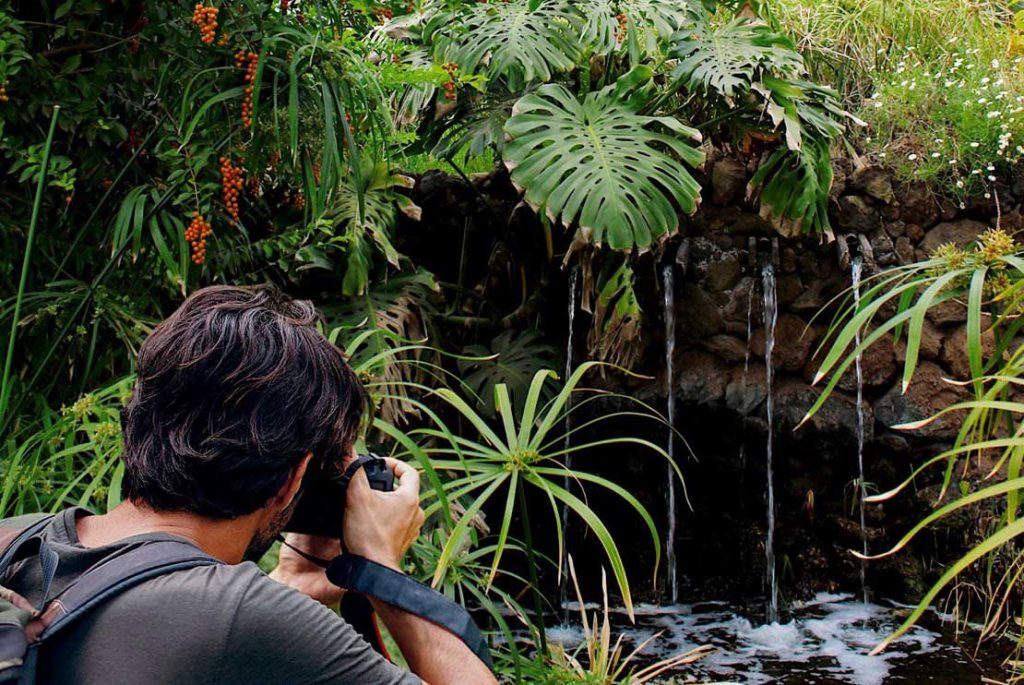
Ein kanarischer Barranco und seine Flora
Der nachhaltige Garten
Dieser attraktive Garten in Pirámides de Güímar ist in Zusammenarbeit mit der Universität La Laguna entstanden und bildet den Wasserlauf einer typisch kanarischen Schlucht nach. Neben den spezifischen Pflanzenarten dieser Umgebung ist das Gewässer auch der Lebensraum für den Europäischen Aal, den einzigen Süßwasserfisch der Kanarischen Inseln. Die reiche lokale Artenvielfalt ist pädagogisch wertvoll und fördert das Bewusstsein für die Erhaltung der Inselnatur. Der Bereich veranschaulicht die ökologischen, wirtschaftlichen und sozialen Aspekte der Nachhaltigkeit.
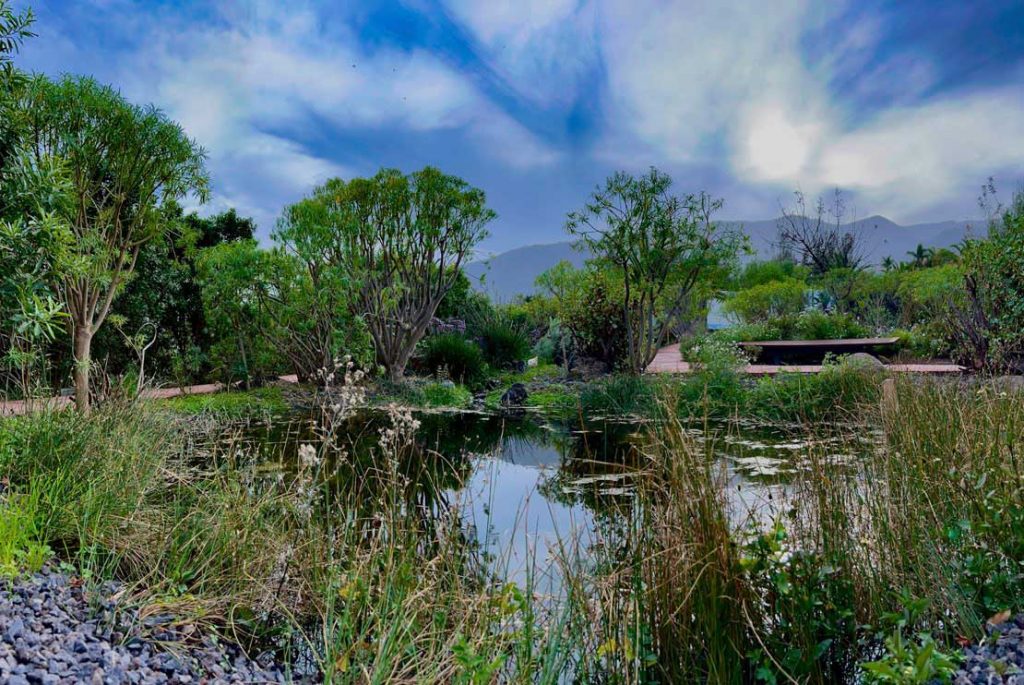
Eine einzigartige Pflanzenwelt auf Teneriffa...
Das Tropicarium
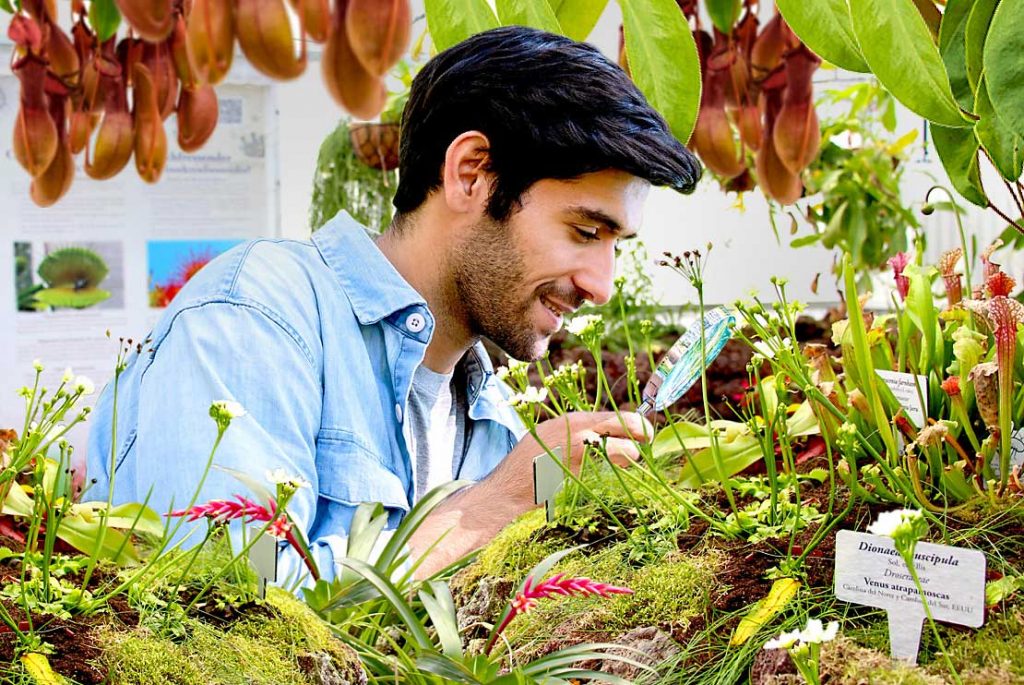
Piramides de Güímar präsentiert das Tropicarium, ein botanisches Projekt, das in Zusammenarbeit mit der Universität La Laguna entstanden ist. Bestaunen Sie in diesem magischen Garten die raffinierten Überlebensstrategien der tropischen Orchideen und insektenfressenden Pflanzen. Erfahren Sie, warum diese exotischen Arten Charles Darwin faszinierten. Auf einer geführten Besichtigung erklären Ihnen unsere Experten dieses faszinierende Universum. Fragen Sie an der Rezeption nach den Öffnungszeiten für dieses botanische Erlebnis.
Ein botanischer Spaziergang zwischen Pyramiden
Die kanarische Pflanzenwelt
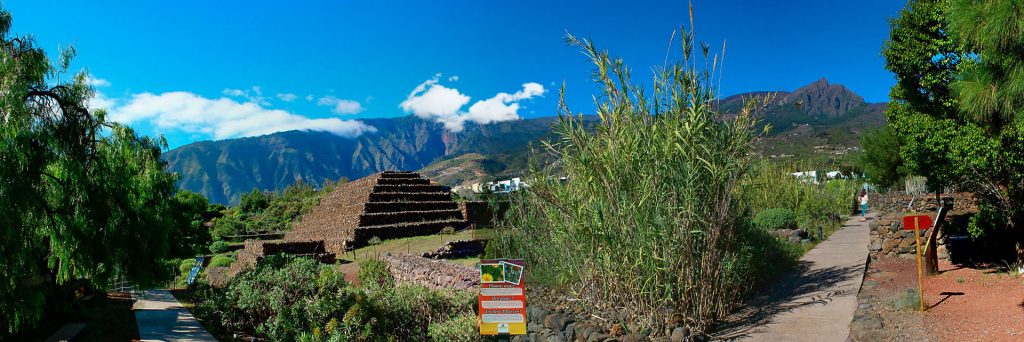
Wolfredo Wildpret-Rundgang
Dieser Rundgang führt sie der einzigartigen Schönheit der kanarischen Pflanzenwelt näher. Lassen Sie sich von der majestätischen Kanarischen Dattelpalme (Phoenix canariensis), der erhabenen Kanaren-Wolfsmilch (Euphorbia canariensis), der zarten Blütenreichen Winde (Convolvulus floridus), dem mystischen Kanarischen Drachenbaum (Dracaena draco) und der zeitlosen Perfektion der Kanarischen Kiefer (Pinus canariensis) verzaubern. Die bedeutendsten endemischen Pflanzen sind sorgfältig mit der wissenschaftlichen und volkstümlichen Bezeichnung beschriftet, und spezielle Tafeln informieren über ihre Geschichte und die Bedeutung für das kanarische Ökosystem. Nutzen Sie Ihren Aufenthalt auf Teneriffa, besuchen Sie uns und genießen Sie dieses unvergessliche botanische Erlebnis!
Export-Rundgang
Dieser Rundgang konzentriert sich auf die kanarischen Agrarprodukte und den Übersee-Handel nach der Eroberung der Inseln. Exportiert wurde u.a. Zuckerrohr, Wein, Schildläuse, Bananen und Tomaten. Informationstafeln und historische Fotografien zeigen Ihnen auf dem Lernweg mehr über die Bedeutung dieser Produkte für die kanarische Wirtschaft. Erkunden Sie diesen einzigartigen botanischen Spaziergang auf Teneriffa, bei dem jede Ecke eine Geschichte erzählt!


Grounding oder Earthing ist der direkte Körperkontakt mit der Erde durch unsere Füße, um die Erd-Energie aufzunehmen…
Erleben Sie die heilsame Wirkung in unserem Sinnesbereich!
